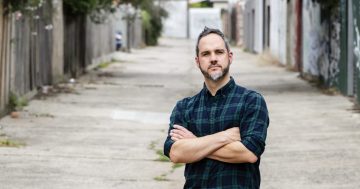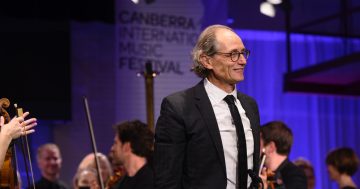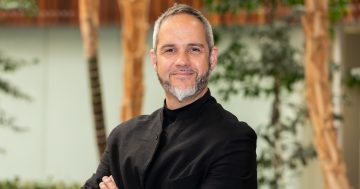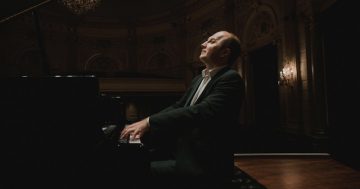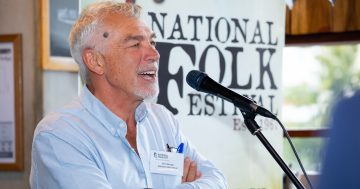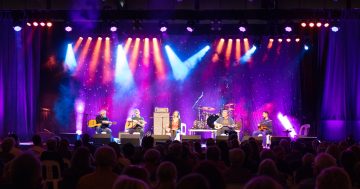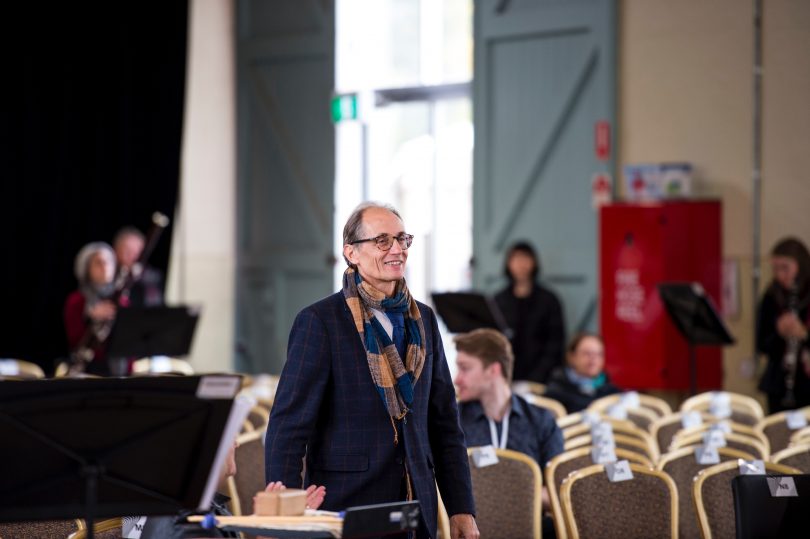
Against all odds, Canberra International Music Festival artistic director Roland Peelman and his team delivered a very successful 2021 event. Photo: File.
Dogged by a pandemic that meant international stars could not reach our shores, and challenged until almost the last minute by uncertainty, this year’s Canberra International Music Festival (CIMF) has been a remarkable success, on par with its 25th anniversary year in 2019.
The festival, which concluded on Sunday, 9 May, encompassed more than 100 musicians and performers (including ensembles), 62 concerts (18 performed twice because of COVID-19 restrictions on audience size), 10 livestreamed concerts, and six free events as audiences flocked to hear live music again.
It was also a boon for artists, many of who had not performed at all in 2020 during the height of COVID-19 restrictions. Classical accordionist James Crabb, who performed Piazzolla tangos, told the audience it was his first concert for almost 365 days.
In the wake of last year’s cancellation, the festival’s management highlighted the need to work with the local arts community and ACT Government to develop strategies to support the live performance industry, to support arts industry workers, and to find creative and innovative ways to bring performances to Canberra.
There were fears the flow-on effects of closures due to COVID-19 could significantly affect the viability of many arts organisations across Australia, and musicians were particularly vulnerable.
Organisers also faced considerable uncertainty around the ACT’s COVID-19 limits on live performances as guidelines changed frequently. The festival based its business model on staging double performances to overcome audience restrictions, but the constantly evolving situation included last-minute questions around whether the event’s major venue, the Fitter’s Workshop, could be used at all.
CIMF board chair Bev Clarke said the festival’s focus has always been on outstanding musicians, including artists with a major international profile.
That standard remained consistent for 2021, but meant that artistic director Roland Peelman sought out and programmed exclusively Australian artists, including many young musicians and composers.
“This year, we were lucky to have a number of well-known performers with international reputations who might otherwise have been overseas,” said Ms Clarke. “The audiences loved it.”
CIMF artists came from every Australian state and territory except Tasmania, and included those from Bathurst Island and Lightning Ridge, and from cities Perth, Melbourne, Sydney and Brisbane. The program also featured many Canberrans, including composers Brenda Gifford, Chris Sainsbury, Olivia Swift and Sally Whitwell; flautist Sally Walker; pianist Edward Neeman; and Romanian-style ‘lautari’ band Super Rats.
Ms Clarke said CIMF sold more than 7000 tickets. For the first time, the program included a full free day of music at Belco Arts as well as events in collaboration with the ANU School of Music at Kambri.
“Interstate patronage continues to grow with more than one-third of our total audience travelling to Canberra for the festival,” she said. “They are long-stay visitors with many patrons joining us for the full 10 days of the festival, contributing to Canberra’s economy.
“CIMF has become a destination for cultural tour groups who attended a number of festival events during five to six days.”
The festival collaborated with Canberra businesses and arts organisations, including the ANU School of Music, which co-hosted the Tiwi Strong Women. The school lent most pianos, and ANU music students also performed at festival events.
Well known and highly regarded critic Vincent Plush wrote: “The Canberra International Music Festival – this is my seventh CIMF – stands with the best of the best in this country … Canberra in early autumn is an artist’s paradise. The perfect place for a festival!”
CIMF was a recipient of a Federal Government Restart Investment to Sustain and Expand (RISE) grant which ensured it could manage the risks associated with presenting the festival in an uncertain environment.
The festival has also acknowledged the support of both artsACT and Events ACT in 2021. Funding support was maintained in 2020 despite the cancellation of last year’s festival.












